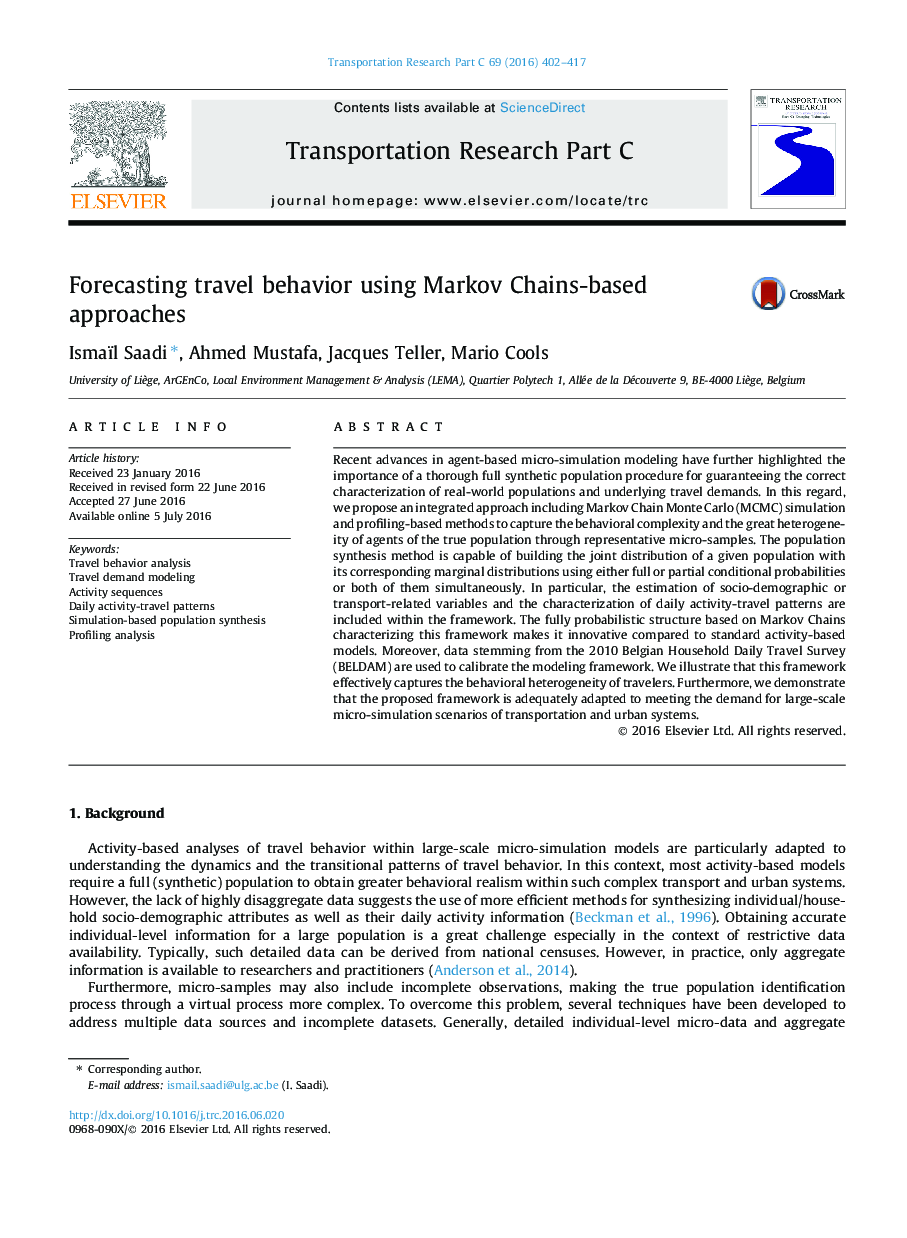| Article ID | Journal | Published Year | Pages | File Type |
|---|---|---|---|---|
| 524739 | Transportation Research Part C: Emerging Technologies | 2016 | 16 Pages |
•The model catches the behavioral effects of predictor variables that vary by group.•The sub-models are mainly based on Markov Chains (MC) processes.•The framework is calibrated using the Belgian National Household Travel Survey.•The simulation-based approach is compared with IPU.•The profile Hidden Markov Models (pHMMs) are validated against the reference dataset.
Recent advances in agent-based micro-simulation modeling have further highlighted the importance of a thorough full synthetic population procedure for guaranteeing the correct characterization of real-world populations and underlying travel demands. In this regard, we propose an integrated approach including Markov Chain Monte Carlo (MCMC) simulation and profiling-based methods to capture the behavioral complexity and the great heterogeneity of agents of the true population through representative micro-samples. The population synthesis method is capable of building the joint distribution of a given population with its corresponding marginal distributions using either full or partial conditional probabilities or both of them simultaneously. In particular, the estimation of socio-demographic or transport-related variables and the characterization of daily activity-travel patterns are included within the framework. The fully probabilistic structure based on Markov Chains characterizing this framework makes it innovative compared to standard activity-based models. Moreover, data stemming from the 2010 Belgian Household Daily Travel Survey (BELDAM) are used to calibrate the modeling framework. We illustrate that this framework effectively captures the behavioral heterogeneity of travelers. Furthermore, we demonstrate that the proposed framework is adequately adapted to meeting the demand for large-scale micro-simulation scenarios of transportation and urban systems.
